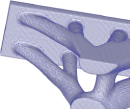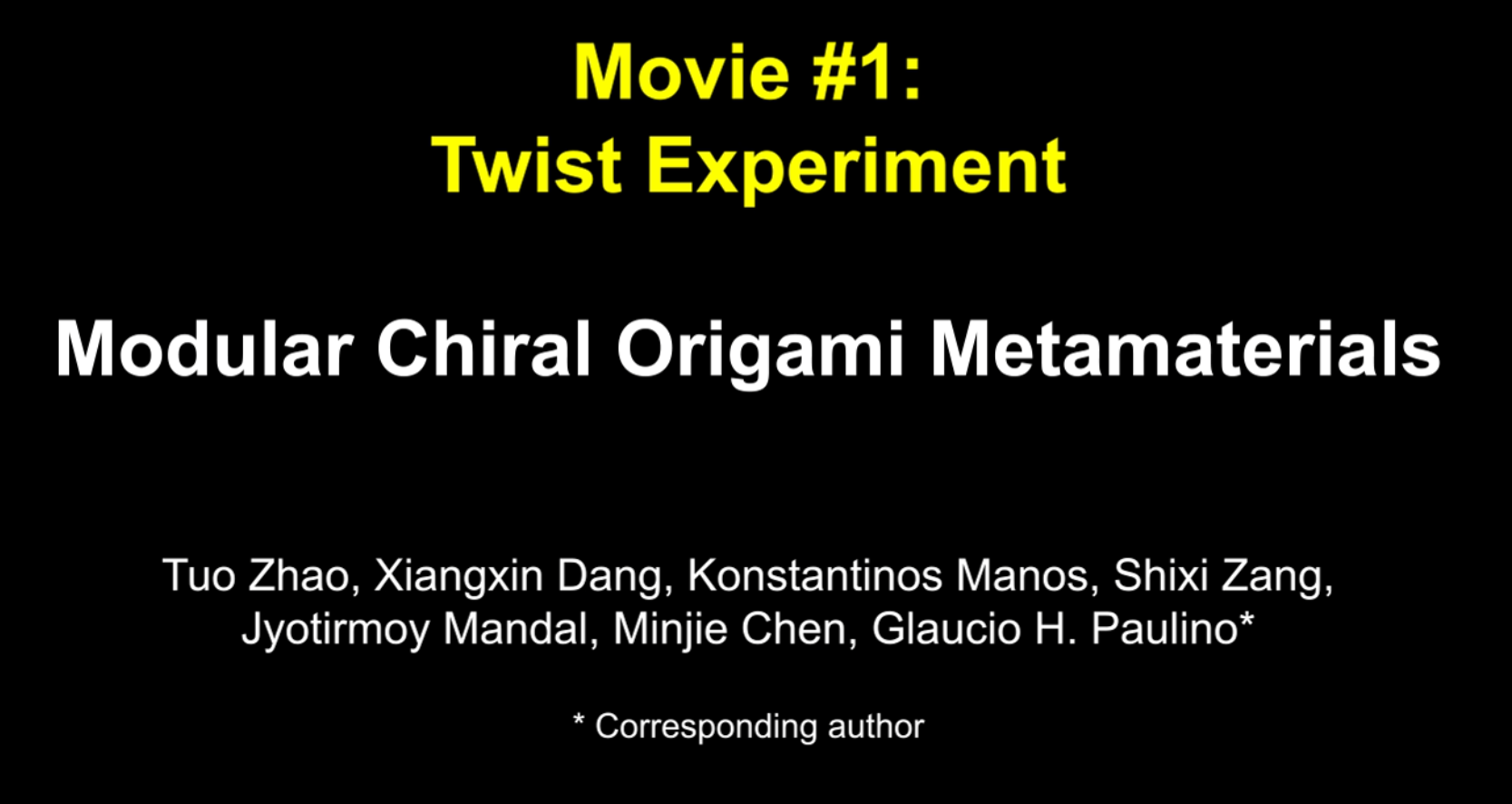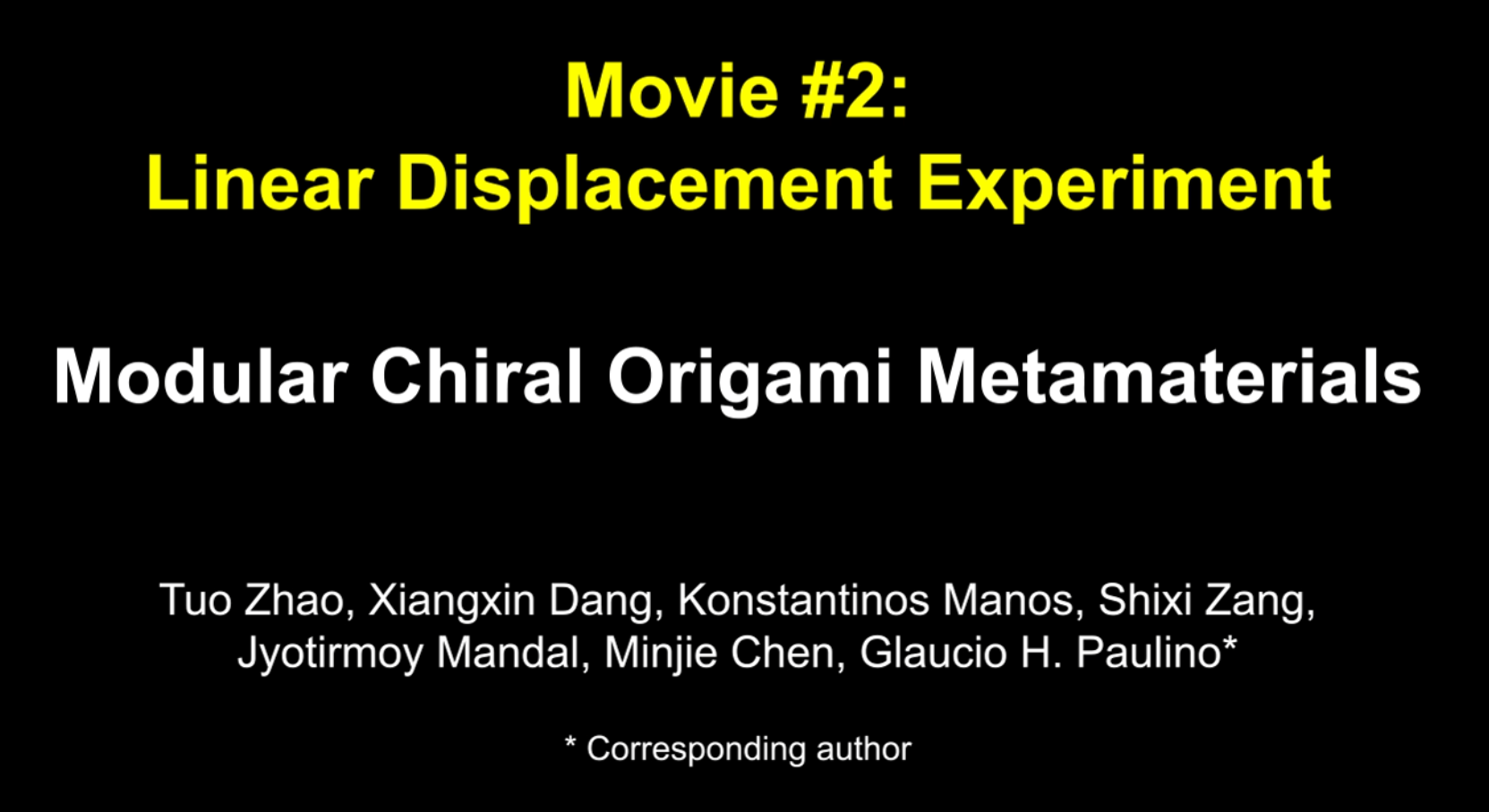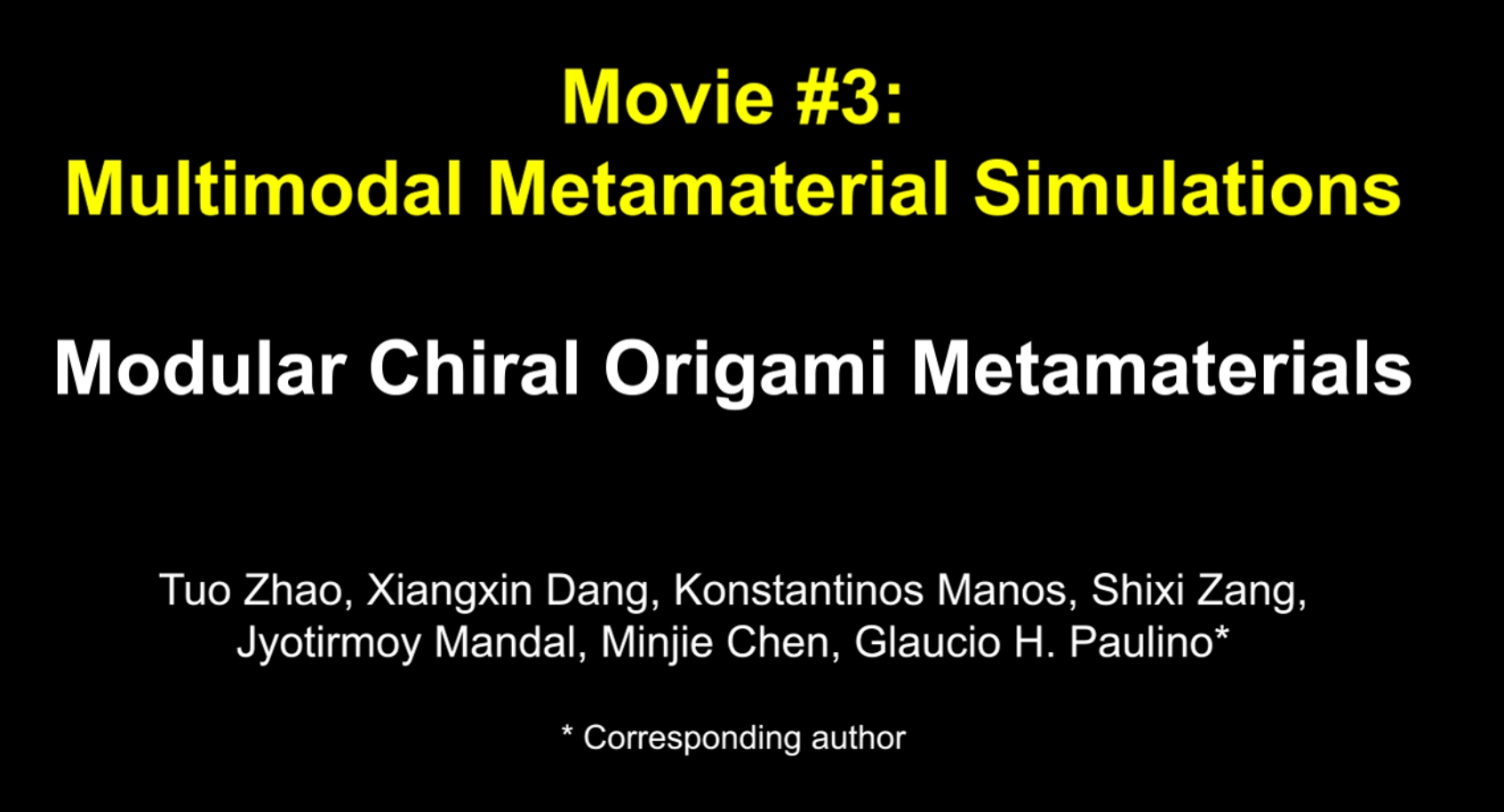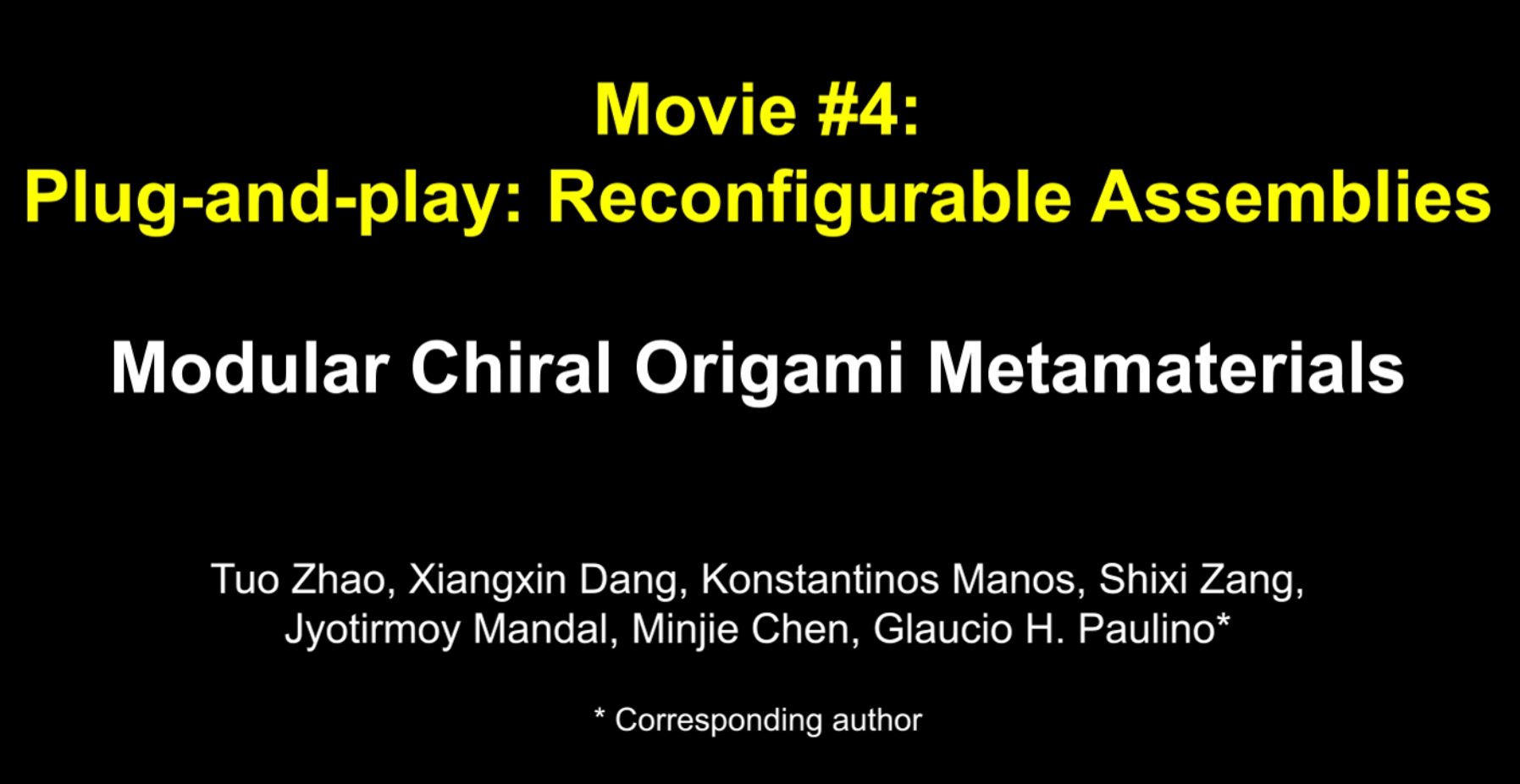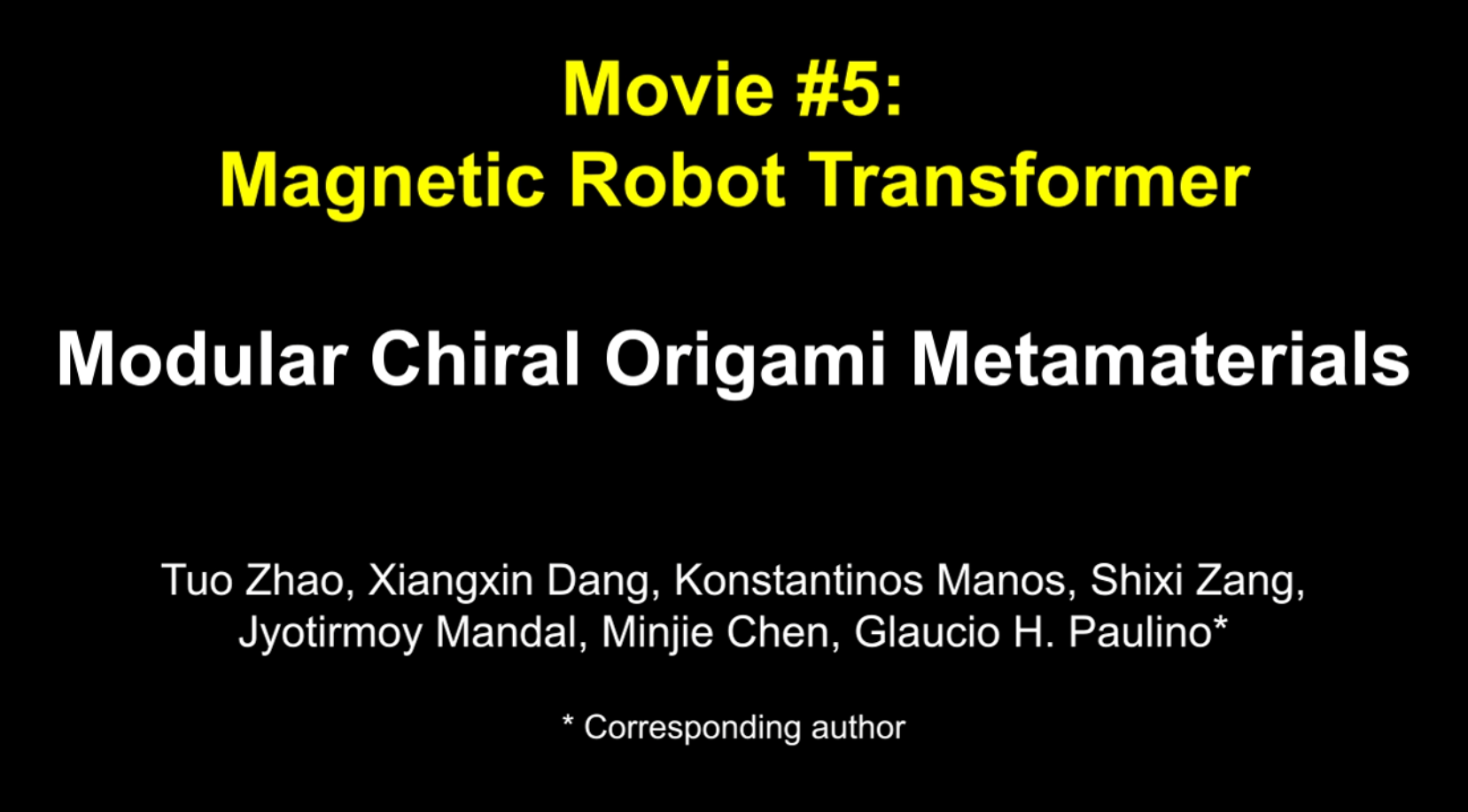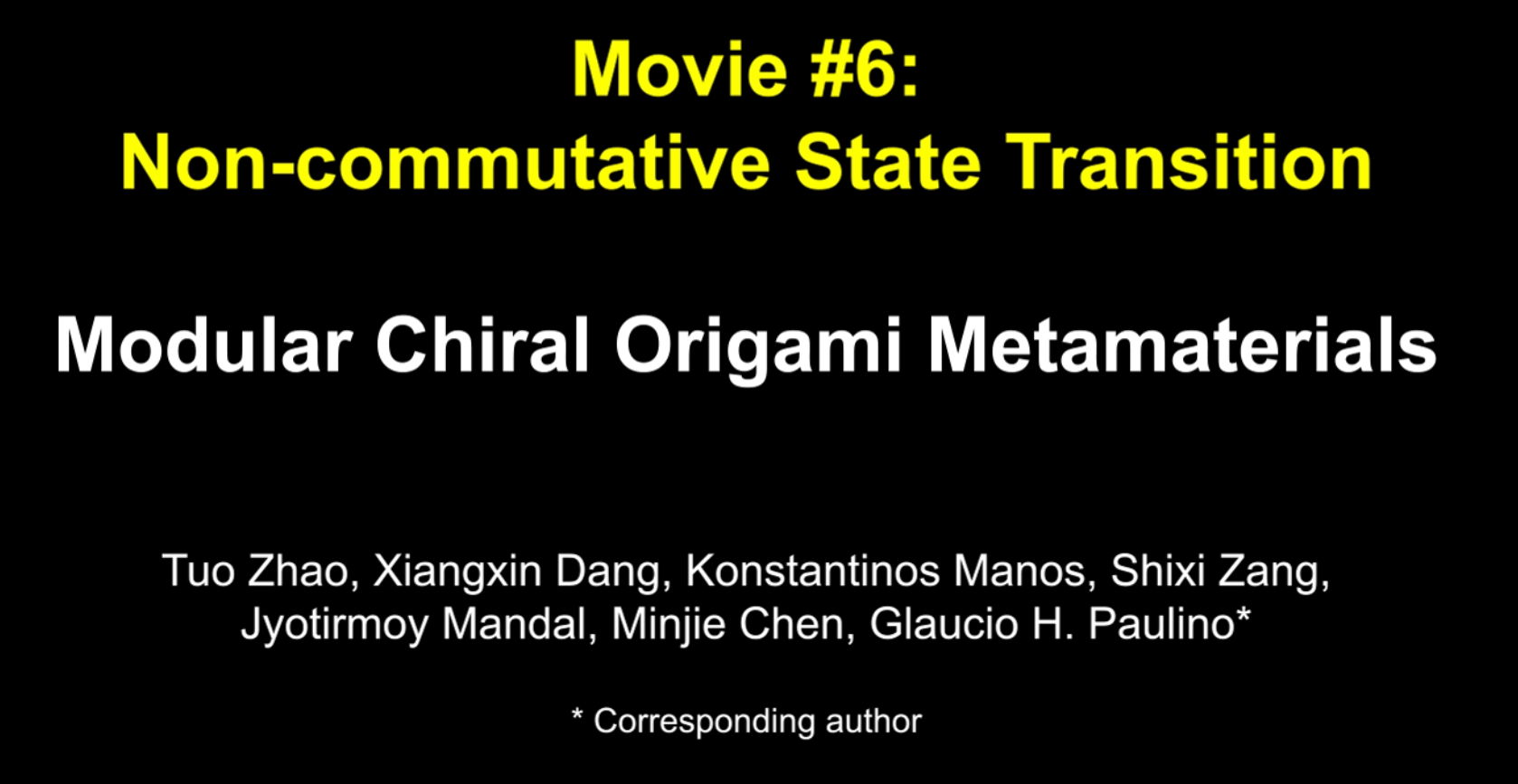Metamaterial Publication Appears in Nature
Prof. Glaucio H. Paulino and research group member Drs. Tuo Zhao, Xiangxin Dang, Shixi Zang, Mr. Konstantinos Manos, along with collaborators Profs. Jyotirmoy Mandal and Minjie Chen, establish modular chiral metamaterials, consisting of auxetic planar tessellations and origami-inspired columnar arrays, with decoupled actuation. Under single-degree-of-freedom actuation, the assembly twists, contracts in-plane, and shrinks out-of-plane. The researchers demonstrate two distinct actuation conditions: either twist with free translation or linear displacement with free rotation. The metamaterial is built upon a highly modular assembly, which enables reprogrammable instability, local chirality control, tunable loading capacity, and scalability. The new concept provides routes toward multimodal, multistable, and reprogrammable machines, with applications in robotic transformers, thermoregulation, mechanical memories in hysteresis loops, non-commutative state transition, and plug-and-play functional assemblies for energy absorption and information encryption.
The work was published in Nature on April 23, 2025.
View Abstract
View Full Text (PDF)
View Supplementary Information (PDF)
Direct Link to Journal


